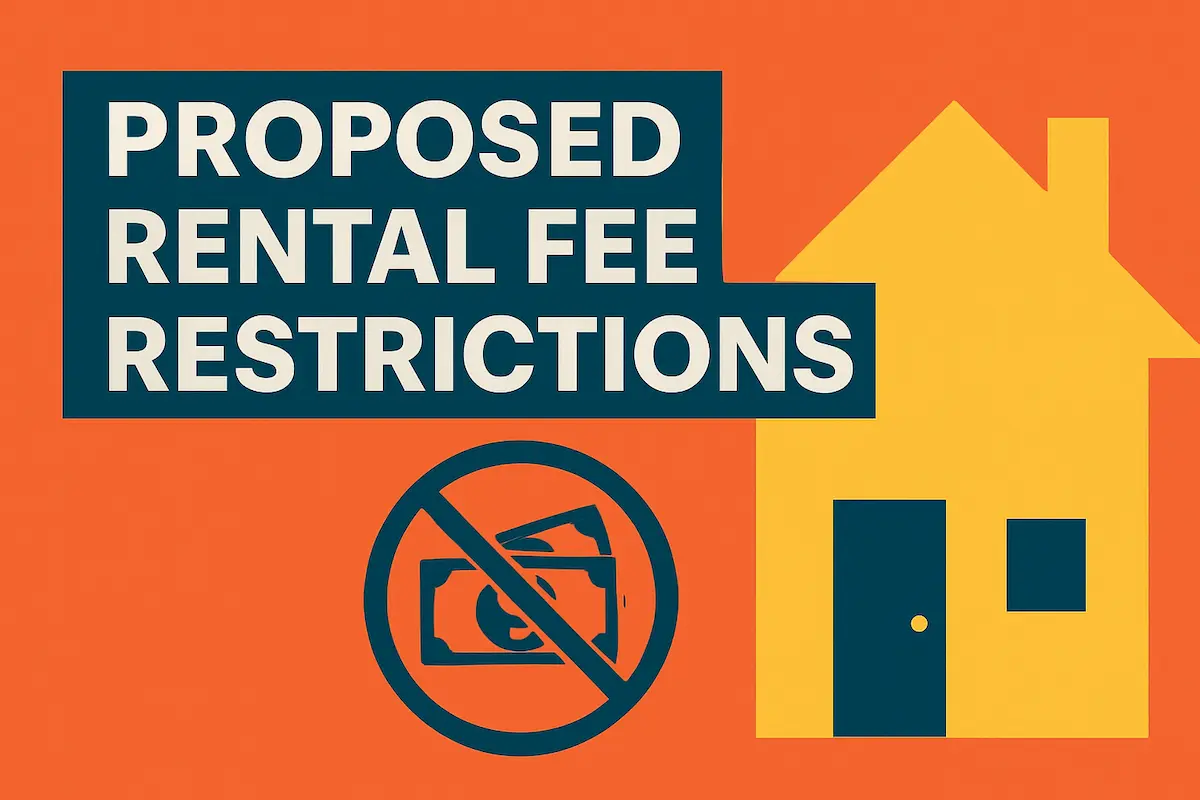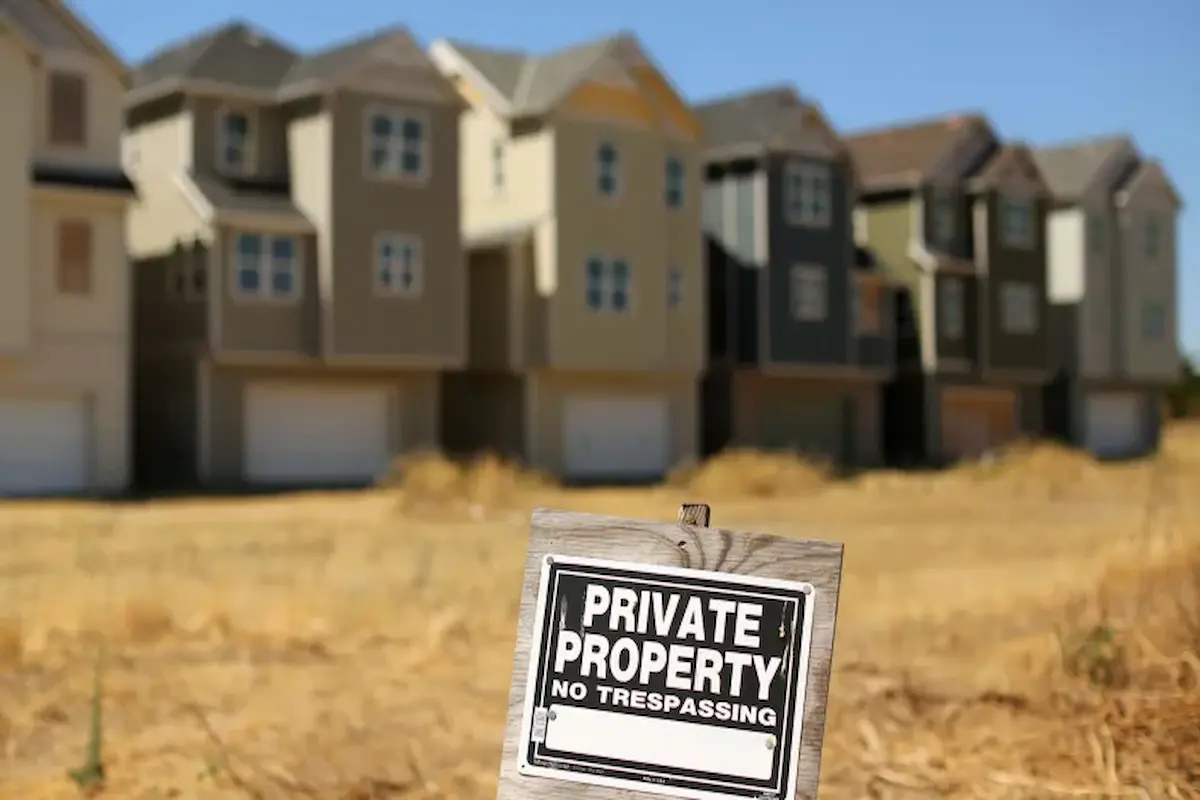How California Bill AB 2216 will Affect Orange County Landlords
A new bill was introduced to the California State Legislature that has the potential to change how pets are handled by landlords in Orange County and across the entire state. Let’s look at AB 2216 and explore how this new bill will affect Orange County landlords.

Key Takeaways
- California Bill AB 2216 could require you to allow common household pets in your rental properties unless there are valid health or safety concerns.
- The bill aims to make housing more accessible for the 70% of tenants who own pets, which could expand your pool of potential renters.
- If AB 2216 passes, you won’t be able to charge pet deposits or pet rent, so it’s essential to prepare for potential adjustments to your budget for maintenance or repairs.
- The bill also ensures you can only ask about pets after approving a tenant’s application, promoting fair treatment of renters.
Table of Contents
- What is California Bill AB 2216?
- Now that Bill AB 2216 has been introduced, what’s next?
- Why is California considering Bill AB 2216
- How do Californians feel about Bill AB 2216?
- What Orange County landlords need to know about AB 2216, pet bans, and pet rent
- California Bill AB 2216 FAQs
- Hiring a property management company in Orange County
What is California Bill AB 2216?
Assembly member Matt Haney has brought Assembly Bill (AB) 2216 to the California State Legislature. The bill would require landlords to allow common household pets in all residential units and end excessive pet deposits and rent fees.
AB 2216 will require landlords to have a reasonable reason for not allowing pets in a rental unit. Whether landlords need to restrict pets for health, safety, allergies, or space reasons, they must clearly outline those reasons.
The bill will also prohibit pet rents or deposits that some landlords currently rely on to cover the potential damage and wear and tear caused by pets.
Finally, AB 2216 only allows landlords to ask about pet ownership once a tenant’s application has been approved, ensuring that pet owners have an equal opportunity to lease a rental unit.
Landlords will still be able to require tenants with pets to have pet liability insurance and implement reasonable accommodations, limitations, and prohibitions, although the definitions of these terms aren’t clear now.
If approved, the bill will become effective on January 1, 2025, and all rental agreements signed before that date will be exempt from it.
If you need help understanding how AB 2216 impacts your rental property, our Orange County property management company is here to assist. Give us a call at (949) 892-1505. Whether you need an Irvine property manager, Anaheim rental management company, or Huntington Beach property management service, our team ensures you stay compliant with new legislation while protecting your investment. Contact us today to navigate these legal changes with confidence.
Now that Bill AB 2216 has been introduced, what’s next?
Bill AB 2216 is in its infancy. It has been brought forward to the California State Legislature, but it still has a long way to go before it becomes law.
Before a bill can become law in California, it needs to be introduced and have its first reading. The first reading is when the clerk reads the bill number, the author’s name, and the descriptive title of the bill on the floor. Once the bill has been read, it needs to be in publication for 30 days before it can move to the next step.
The bill then moves to the Assembly Rules Committee and is assigned to the appropriate policy committee. It then goes to a hearing where the author presents the bill, and people testify in support or opposition to it. The Committee can pass the bill, pass an amended bill, or defeat the bill. Passing a bill requires a majority vote of the Committee.
If the Committee passes the bill, it is read a second time in the House of Origin and then moves on to a third reading. During the third reading, the bill is read and explained by the author, discussed by the members, and voted on by a roll call vote.
If the bill passes the Assembly vote, it goes to the Governor. The Governor has three choices—they can sign the bill into law, allow it to become law without their signature, or veto the bill.
Most bills will go into effect on January 1st of the following year.
At the publication date, Bill AB 2216 has completed its second reading and has been put forward for its third reading.
Why is California considering Bill AB 2216?
Haney brought AB 2216 to the Legislature to combat California’s housing crisis. According to Haney, “California has the second highest number of tenants in the country, with 17 million families and individuals renting.” Close to 70% of those 17 million people are pet owners, but “only 30% of available rentals in any given city are pet friendly.”
Those numbers certainly ring true in Orange County. With 42.89% of the area’s population renting, as many as 948,451 people could be looking for pet-friendly rentals.
Using the current listings on Zillow, we can see that only 19% of rentals in Orange County allow large dogs, 41% allow small dogs, and 35% allow cats.
Some suggest that having a pet ban on your rental unit also keeps landlords from finding the right tenants. Others say the pet bans force tenants to lie about their pets and later bring them into their rental units without any precautions like pet insurance.
Those who support AB 2216 say that this is a step in the right direction to address tenancy trends that show a need for more pet-friendly housing. Detractors argue that the bill takes away landlords’ rights and autonomy to set terms and conditions that suit their business models.
How do Californians feel about Bill AB 2216?
While it is still in the early stages, Bill AB 2216 has become contentious. Californians are on both sides of the issue—some support requiring landlords to allow pets, while others are firmly against it.
Some Californians are in support of Bill AB 2216
Supporters of Bill AB 2216 believe that everyone—pet owners included—should have equal access to housing in California. Because of the housing shortage, supporters argue that pet bans in apartment complexes are causing some individuals to consider rehoming their pets to keep a roof over their heads.
“Humans have pets, they always have and they always will,” said Haney in an Instagram post. “Blanket ‘no companion pet’ policies, even in brand new buildings, are causing landlords to miss out on good tenants who get rejected without even getting a chance to apply for a place to live.”
Supporters of the bill also highlight that the fees some landlords choose to implement for pet owners can make the cost of living inaccessible. Bill sponsor, The Humane Society of The United States, notes that the increased cost can cause more pet relinquishment. They say pet rent and deposits “adversely affect a tenant’s ability to gain access to housing, impede people’s chances at acquiring affordable and stable places to live, and spur pet relinquishment.”
By removing pet deposits and rent and requiring landlords to accept pets, supporters believe both individuals and their companion pets will be able to find affordable housing while landlords can still rent their properties.
Some Californians are opposed to Bill AB 2216
Detractors see the bill as an infringement on private property rights. As a property owner in California, you are granted several rights known as the “bundle of rights.” There are five rights associated with owning property:
- Possession
- Control
- Exclusions
- Enjoyment
- Disposition
Together, these five rights ensure property owners have the authority to occupy and use their property as they see fit. Detractors argue that Bill AB 2216 goes against their right to control their property and how it is used.
The proposed bill requires landlords to accept pets and restricts their ability to impose additional fees for potential damage. Because of this, the bill would force landlords to put their property at risk with no safety net for them to lean on if a pet does cause damage to their property.
The bill also makes it untenable for some landlords to continue renting their properties. With the potential risk of damage due to pets, many landlords may pull their properties off the market and choose to sell. Having any number of rental units pulled from the market would add to the housing crisis in California—the bill would have the opposite of its intended effect.
REASONS FOR & AGAINST BILL AB 2216 | |
| For Bill AB 2216 | Against Bill AB 2216 |
| Landlords will have access to good potential tenants who may previously have been rejected due to their pet(s). | The bill infringes on the private property rights afforded to all property owners in California. |
| Pet owners will not face additional fees (pet rent or pet deposits). | The bill forces landlords to put their property at risk with no financial safety net in place. |
| The bill gives pet owners the confidence to be truthful about their pets during house-hunting. | Landlords may take their properties off the market, adding to the current housing crisis. |
| There will be more houses on the market that are accessible to pet owners (70% of California’s population). | Having pets in a rental unit can cause issues for other tenants due to allergies, noise pollution, safety, space, and more. |
| Pet relinquishment numbers will drop as pet owners can find affordable housing. | Keeping pets can reduce property value and increase property maintenance costs. |
If you want to share your thoughts on Bill AB 2216, contact your state legislator. Additionally, you can contact the California Apartment Association and the Southern California Rental Housing Association for updates and information on Bill AB 2216.
Frequently Asked Questions
What Orange County landlords need to know about AB 2216, pet bans, and pet rent
While we wait to see how AB 2216 moves through the legislative process, landlords must consider how these changes may impact their roles and responsibilities. Here are five things to think about before this new bill is potentially enacted.
Will your operations change?
AB 2216 will require landlords to reevaluate and potentially rewrite their existing lease agreements. Landlords will also need to consider their current day-to-day operational strategies and how they might need to change to accommodate pets. Landlords must also reexamine maintenance procedures to address a potential wear-and-tear increase.
How will you choose your tenants?
For some, pet ownership was used as a quick way to exclude potential tenants. With AB 2216, landlords will face additional challenges in selecting tenants and maintaining communities, especially in multi-unit dwellings where a dog may inconvenience some residents.
Will you need to adjust your insurance?
With pets comes the potential for additional property damage and a heightened risk from having animals on the property. Landlords should look closely at their liability coverage to ensure they are safeguarded against potential issues arising from having pets in their rental units.
What is classified as a “common household pet”?
The Legislature mentions that AB 2216 will cover “common household pets” but doesn’t provide a comprehensive list of what constitutes a common household pet. Examples are used, like cats and dogs, but landlords must decide what fits into that category on a case-by-case basis. If AB 2216 passes, it’s essential for landlords to determine what will be considered a common household pet and include said information in their lease agreements.
What are the financial implications?
There is a potential for additional costs with pets in rental units. Getting ahead of the game and understanding what those costs are is essential for landlords. Will you need to modify some rental units? Will you be dealing with higher maintenance expenses? Will you have to invest in legal costs to comply with the new bill? These are all questions that landlords should be asking themselves as the bill moves through the legislative process to avoid being caught out if the bill passes.
There’s no arguing that if AB 2216 passes, it will have a heavy impact on landlords, tenants, and the rental landscape in Orange County. Being aware and prepared can help you ensure that you understand your responsibilities as a landlord and the rights of your tenants.
California Bill AB 2216 FAQs
What is the proposed purpose of Assembly Bill 2216?
The proposed purpose of Assembly Bill 2216 is to help manage the housing crisis in California by requiring rental units to be pet-friendly, unless they have an exception for a health and safety reason.
What are the benefits of renting to pet owners?
Landlords can experience many benefits when they rent to pet owners. Because there are so many pet owners looking to rent, a pet-friendly rental will open up a much larger pool of applicants. It can be assumed that most pet owners are responsible individuals because they care for their pets. Additionally, it can be difficult to find a rental with a pet, so tenants with pets are often looking for a long term rental. You’ll have a better chance of finding the right tenant when you rent to pet owners.
What are the challenges of renting to pet owners?
There are challenges that landlords may face when renting to pet owners. It’s important to have a plan in place to deal with each of the following issues before you start welcoming pet owners into your rentals:
- Pet waste and order can cause frustrations for other tenants.
- There is a potential for noise complaints, especially with dogs who bark.
- The likelihood of property damage increases when you rent to pet owners.
- If other tenants have allergies or a fear of animals, having pets in a multi-dwelling unit can be problematic.
Hiring a property management company in Orange County
Managing the responsibilities and repairs of your rental can take time and effort. At Good Life Property Management, we believe life should be enjoyed, not spent sweating the small stuff. That’s why we set out to make property management easy. We service all of Orange County, ensuring landlords in every city receive expert support. Whether you need a Fullerton property management expert, Costa Mesa rental property manager, or Newport Beach property management company, our team is here to help. We care about you, your property, and your tenant. And we do it all so you can Live the Good Life.
Schedule a call to speak with one of our Good Life experts.
Steve Welty
Subscribe to Our Orange County Landlord Newsletter
Interested in speaking with an Orange County Property Management Expert? Get in touch with us:
Orange County Property Management Blogs

SB 681 Could Make Common Rental Fees Illegal in California
California’s SB 681 targets application fees, convenience fees, and more. Learn what this proposed law means for landlords and how to prepare.

California Law SB 448 Could Help Landlords Remove Squatters Faster
SB 448 is a proposed law giving landlords a faster, lawful way to remove squatters from residential properties—without going through full eviction court.

How Good Life Screens Tenants: Our Proven Process Explained
Discover how Good Life Property Management screens tenants using proven, law-compliant criteria. Learn our exact process to minimize risk and avoid bad tenants.









